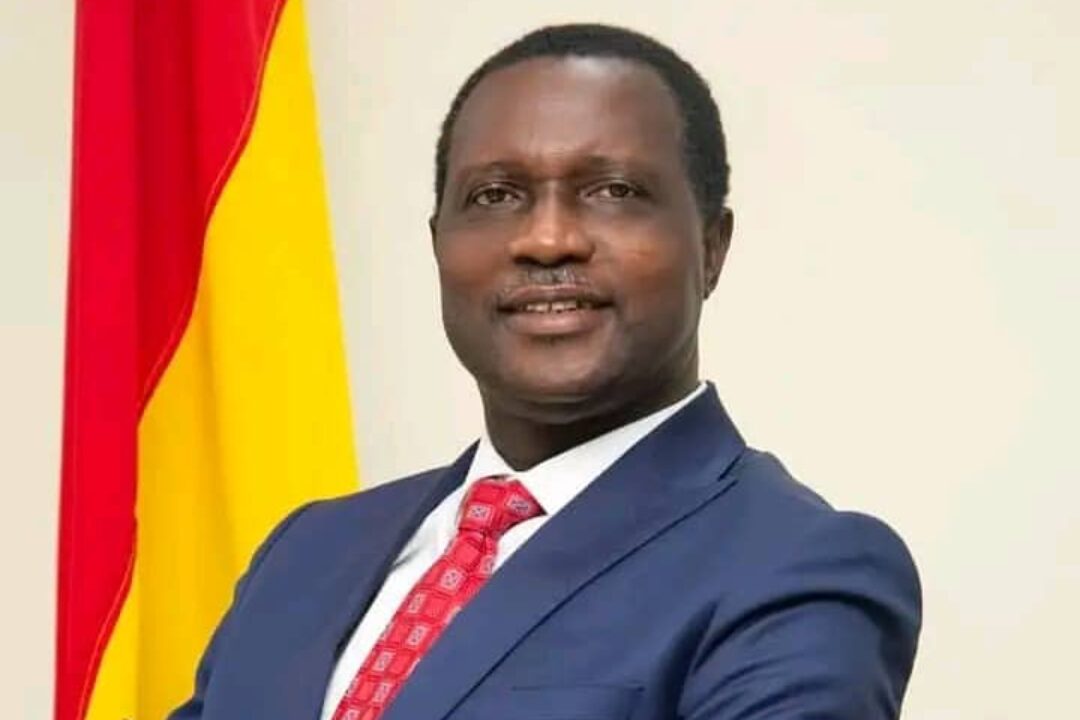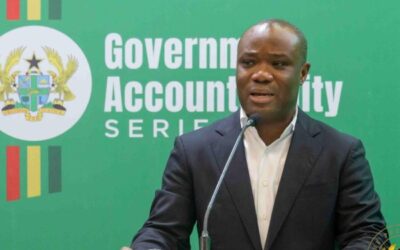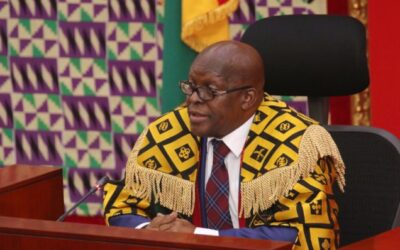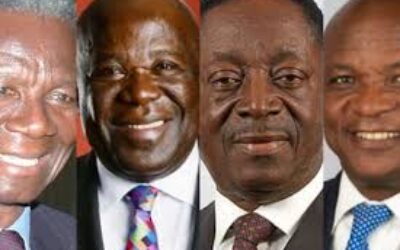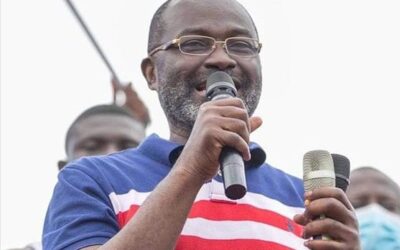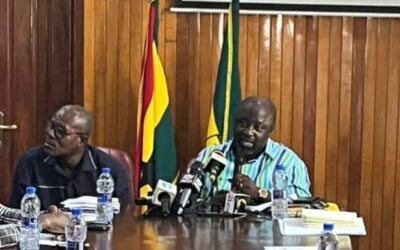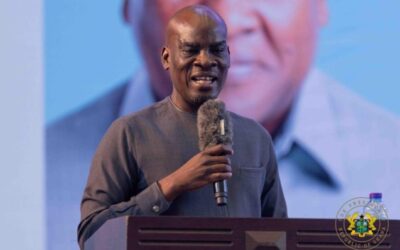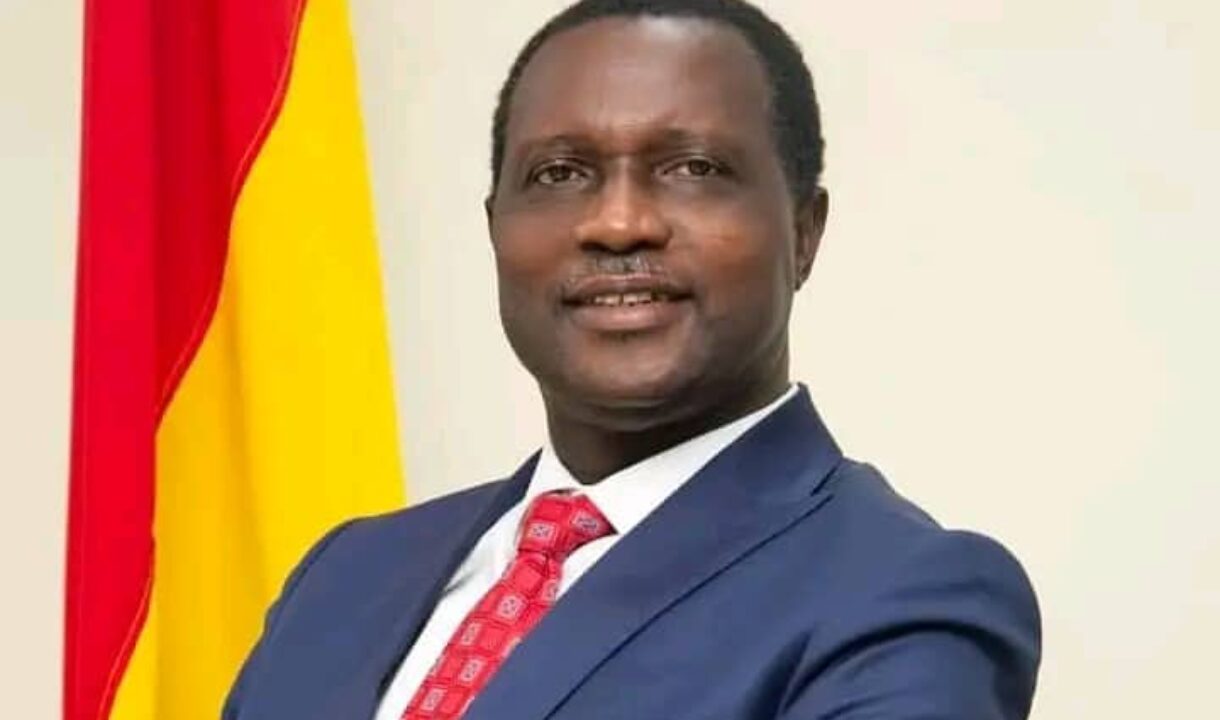FULL TEXT:COMMUNIQUE ISSUED AT THE END OF THE 1ST QUADRINNIAL NATIONAL DELEGATES CONFERENCE OF THE HEADS OF BASIC SCHOOLS (COHBS) FROM 25TH TO 27TH MAY 2022 AT CHRISTIAN VILLAGE, SANTASE – KUMASI
PREAMBLE:


Conference of heads of basic schools is the umbrella body for head teachers of the public Basic schools in Ghana. We are estimated to be over fifty-three thousand in membership.
COHBS is twelve years old. Our delegates conferences used to be biennial until in 2016, a resolution was passed to have conference in every four years. But COVID 19, this very conference should have happened in year 2020.
This year’s conference was on the theme; “Elevating Basic Education in Ghana: the key role of the Basic School Head teacher”.
COHBS concerns itself with the welfare of its members. This includes but not limited to fighting for the conducive teaching and learning environment and sharing professional best practices among members.
OBSERVATION:
It was worrying to note that almost all the dignitaries invited to the conference either did not attend in person all did not attend at all after formal invitations have been extended to them months earlier.
With the exception of GNAT, all the other teacher unions invited did not show up. The Director General of Ghana Education service did not attend at all. The minister of Education attended the conference through the director in charge of pre tertiary education. Patrons were highly disappointed at the turn of events with the conclusion that ‘the Basic school level in the country is not a priority to the powers that be’.
RECOMMENDATIONS :

Major among the recommendations made by conference are as follows;
POOR INFRASTRUCTURE
Availability of basic infrastructure and services do have effect on the performance of pupils in primary educational institutions. Dilapidated school buildings and lack of furniture are impeding smooth delivery of lessons. Some of the infrastructural challenges facing basic schools in Ghana include:
Dilapidated school buildings posing as death traps for both teachers and students.
The school furniture deficit compelling four pupils to share a dual desk.
Lack of teacher’s tables and chairs for classroom activities.
Lack of laboratories such as computer laboratories and science laboratories at our basic school level.
COHBS continues to draw your attention to the fact that the situation in some of the basic schools reveal a very worrying situation as some students are forced to sit on the floor with broken pieces of furniture and some of the classrooms have developed pot holes, making it inappropriate environment for teaching and learning.
Pupils at times, have to lie on the floor to write notes and upper primary students sit on broken pieces of furniture which is a hindrance to the development of writing skills among pupils.
The health and safety of pupils at the Basic school level have also become issues of greater concern amidst incidents of school buildings collapsing, leading to death of some pupils. It is, therefore, prudent that safe and adequate infrastructural facilities are provided to ensure safety and comfort of schools to induce effective teaching and learning delivery in Ghanaian schools.
HEAD TEACHERS’ RESPONSIBILITY ALLOWANCE
Section 15 sub-section 13 of the Collective Agreement for teaching staff within the Ghana Education Service is clear on who qualifies for responsibility allowance.
We are very grateful to management for the action taken on this subject so far. Reports from the districts indicate that some of our colleagues who lost their responsibility allowance status due to promotion from 2017 to 2019 are being restored in batches. It is also worthy to note that the allowance does not go off from our pay slips anymore even when we go on promotion.
We appreciate this effort so much. We will however appreciate it greatly if all newly appointed colleague headteachers who qualify for responsibility allowance are made to enjoy same. Some of our colleagues are getting frustrated for applying and re-applying for this allowance without success.
We further call on management to structure this allowance as a percentage of our gross monthly salary.
LONG ABSENCE OF TEACHING AND LEARNING MATERIALS OF THE NEW CURRICULUM
The availability of appropriate and adequate instructional materials ensures effective teaching and learning. Instructional materials give pupils the chance to use their senses of hearing, smelling, tasting, seeing, and feeling (Opera & Etukudo, 2014). If instructional materials are not available, pupils are made to read textbooks while the teacher explain the concepts to them instead of the students carrying out activities as suggested by the curriculum (Azure, 2015).
This deprives pupils of taking responsibility for their learning through active construction and reconstruction of their meanings for concepts and phenomena (Borich, 2007). The benefits of the use of instructional materials in teaching and learning cannot be overemphasized. This is because, as pupils become involved in learning activities, with the materials, they understand concepts better and ultimately improve their performance.
However, Basic school teachers in Ghana have for the past three years been faced with the challenge of implementing the new standard-based curriculum without the required learning materials. Since its rollout in 2019, teachers across the country are yet to access the requisite learning materials intended to aid teaching and learning in the various basic schools.
The new standard-based curriculum which was implemented in September 2019 was rolled out from Kindergarten to Class 6 in primary schools. We were made to understand that the new curriculum would focus on making children confident, innovative, creative-thinkers, digitally literate, well-rounded, and patriotic citizens.
THE NEGLECT OF JHS PUPILS IN SCHOOL FEEDING PROGRAMME
The objectives of the school feeding programme are: to increase school enrolment, attendance and retention; reduce short-term hunger and malnutrition among kindergarten and primary school children; and boost domestic food production.
In the light of these successes of school feeding in the primary schools, the government of Ghana introduced a policy on free school feeding in senior high schools (SHS) in September 2017. The aims are to increase enrolment and potentially improve nutritional status of students in SHSs. The policy includes 3 square meals for residential students and a hot lunch for nonresidential students.
Notwithstanding the challenges confronting the successful implementation of the school feeding programme, it is very worrying that the Junior High School students of the various basic schools are neglected from the school feeding programme although their counterparts from kindergarten to primary school level and even by extension, colleagues in the senior high school levels continue to benefit from this programme. This seemingly segregation and unfair treatment to the junior high school students need to be reconsidered since nutritional challenges in developing countries are still high and continue to impair health, quality of life and survival of pupils across all streams of learning (Black & Victoria, 2013). Again, the scope of the school feeding programme should be extended to cover all basic schools in Ghana. COHBS strongly appeals to you to work hand in hand with the School Feeding secretariat to get our young ones especially the Junior High Students on board.
I further entreated the government to a matter of urgency release funds for the smooth implementation of the programme.
BASIC SCHOOL TEACHERS ARE DENIED MOTIVATION
With the restoration of the teacher motivation, we appeal to Management not to station it at the Senior High School level alone but extend it to the basic schools as well. It could be recalled that, in 2021, both Senior High Schools and Junior High Schools Form (2s) were called back to school to be prepared to exit during the peak of Covid19 pandemic. However, Senior High School teachers were given teacher motivation allowance but Junior High School teachers were neglected. This kind of segregation and unfair treatment meted to basic school teachers breeds apathy and unhappiness. The basic school teacher also deserves motivation.
INTERRUPTIONS ASSOCIATED WITH BASIC SCHOOL HEADTEACHERS’ TENURE OF OFFICE
Both Basic School teachers and Senior High School teachers go through interview and screening before being appointed as heads of their schools. However, Senior high School heads are allowed to have tenure of office uninterrupted, while basic schools heads can be withdrawn at any time at the discretion of an officer. Thus, just at a cough, the officer can decide to relieve you off your position with the justification that basic school headteachers are serving a schedule and not an appointment and we think that it is not the best. Basic school headteachers should also have a free hand in the administration of their schools. Basic school head teachers should remain irrespective of transfers like it is at the Senior High Schools.
TEACHER ACCOMMODATION CHALLENGE
Lack of accommodation for teachers and its negative impact on teaching and learning features prominently among concerns expressed by basic school teachers in Ghana. Most basic schools in Ghana cannot boast of a single bungalow raised to accommodate teachers who have accepted posting to especially the rural areas. Most teachers in basic schools can travel about 5 kilometers in a day to teach the pupils which turns to affect academic work due to no decent accommodation in the basic schools. This makes some other trained teachers to even reject posting to some remote basic schools in the country.
Teacher attribution in basic schools is a global phenomenon which affects the quality of education. Stakeholders of education have expressed concerns on the rapid rate at which some teachers vacate from the profession and the consistent absenteeism especially in rural schools due to inadequate or lack of accommodation.
SANITATION AND UTILITIES BILLS AS ALBATROSS ON HEADS
At our previous meeting with Management at the Ghana Education Service Headquarters, Management assured leadership of COHBS on the action on the subject above but the situation is still the same. As a reminder, we requested for Management to plead with Ghana Water Company, Electricity Company of Ghana (ECG) and Zoomlion to offer the basic schools a non – commercial rate services. Currently, the basic schools are billed commercially for accessing these services which is unfair.
A SIXTY-SEATER BUS FOR EACH DISTRICT
Conference further requested management to support each MMDs with a big bus for easy access to transportation for educational tours and excursions.
UNDUE DELAY IN RELEASING CAPITATION GRANTS
CONCLUSION:
COHBS wishes to partner management in finding appropriate solutions to the various concern raised in this paper.
This will ensure the provision of quality education to both pupils and teachers in the basic schools in the country and the achievement of the target of the Sustainable Development Goal 4 of the United Nations by 2030.
The introduction of the GALOP which tends to compliment the Capitation Grant is good. In as much as we applaud government for the introduction of the GHALOP in some selected basic schools, across the country, it is our prayer that government hooks all schools to it.
Endorsement:
Mercy Akaila – National president 0243976432
Edwin Sarpong Boakye – General Secretary 0207103773


